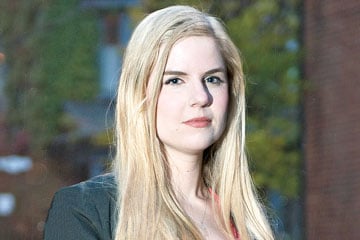
While the Law Society of Upper Canada has forged ahead with changing its name, some lawyers say they felt left out of the process. The regulator’s governing board of benchers voted to change its name to the Law Society of Ontario at its November meeting in order to move away from a moniker critics had said was outdated.

While the Law Society of Upper Canada has forged ahead with changing its name, some lawyers say they felt left out of the process.
The regulator’s governing board of benchers voted to change its name to the Law Society of Ontario at its November meeting in order to move away from a moniker critics had said was outdated.
After benchers approved dropping ‘Upper Canada’ from the name in September, the law society launched surveys with the membership and public on four alternative names.
Some lawyers have voiced concern over the speed at which the changes have been made and were disappointed that the old name was not even an option on the survey.
“I was hoping one of the options in the survey would be ‘Don’t change it,’” says Kathryn Marshall, a lawyer with Dolden Wallace Folick LLP, who participated in the survey.
“It was nice to have some input at least, but I’m definitely of the school of thought not to change it. I think a lot of lawyers in Ontario agree, too.”
In the surveys, respondents could choose from the Law Society of Ontario, Ontario Law Society, Legal Regulator of Ontario and Legal Professionals of Ontario.
Marshall says she thinks there should have been a write-in option on the survey. She adds she was surprised by the name change debate and that there were other things she thinks the law society should focus on if it wants to promote public engagement.
“For me it kind of came out of nowhere,” she says. “I didn’t even know this was broken. Why are we fixing it? Why is this a priority?”
Of the more than 17,000 licensees who responded to the survey, 83 per cent preferred Law Society of Ontario to the other alternatives. Ontario Law Society was the second favourite option with the support of 11 per cent of respondents.
In another survey, the steering group found that 41 per cent of the public favoured Law Society of Ontario, 29 per cent voted for Ontario Law Society and 23 per cent supported Legal Professionals of Ontario.
Bencher Julian Falconer says the options presented in the survey reflected feedback received from the public about which words were clearer and helped gain a better understanding of the law society’s function.
“We consistently heard what confused and consistently heard from the public that the words ‘Upper Canada’ were not helpful in understanding what we do,” says Falconer, who was the chairman of the Strategic Communications Steering Group, which conducted the research about the name change. The steering group enlisted the help of expert consultants to come up with the alternatives.
The group found that the profession was evenly split on the issue of whether the law society should change its name, but Convocation approved dropping the old name in September by a 38-11 vote.
The debate over the law society’s name has pitted those who thought the name has historical value against those who thought the name was anachronistic and a barrier to engaging with the public.
Donald Crawford, president of the Middlesex Law Association, says that while he supports changing the regulator’s name, he was concerned the law society hadn’t properly reached out to rural lawyers in the lead-up to the decision.
“We always have a feeling that the GTA people control everything in the province,” he says.
“And I guess there’s some suggestion of that.”
The association has been conducting its own survey with its membership about whether it agrees with the name change, but it had not yet finalized the results when benchers voted on the new name.
At Convocation, some benchers voiced concerns that the proposal was being approved too quickly without consulting enough with the membership.
Bencher Peter Beach proposed an unsuccessful motion to table the vote on the new name until January to allow for more consultation and argued that the whole process has been flawed.
“This motion has been rammed down our throats with virtually no notice at all to the profession and very little to the benchers,” he said at Convocation. Beach said that benchers should take another month or two to consult further.
“At least take the time to let the members feel that they have been consulted and that this is at the end of the day going to be a consensus among our members going forward.”
LSUC Treasurer Paul Schabas, who has been supportive of a name change, said the information has been available for the profession since June.
Falconer pointed to the fact that the law society also held a full information session for the profession in June and shared all the available data.
There were 33 benchers who voted for the new name. Bencher Joe Groia was the lone bencher who voted for Ontario Law Society. Six abstained from the vote and five voted against the motion.
The change is the first step of a larger communications strategy the law society is exploring to better engage the public. It will take effect Jan. 1, 2018.
The law society has put aside $150,000 for the rebranding, which will be rolled out over a year.
The legal name will remain the “Law Society of Upper Canada” until the provincial legislature amends the Law Society Act.